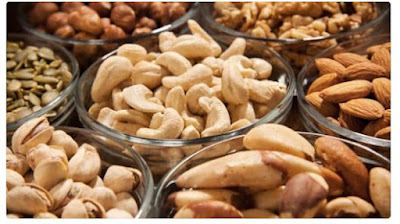Types Of Foods One Must Incorporate In Winter Diet - Expert Suggests.
Ayurveda recommends adding natural dairy products, fats and oils (sesame or mustard oil), and ghee to our diet in winter so as to maintain warmth and facilitate the digestive technique of the frame. Sahaj (hereditary), Kalaj (seasonal), and Yuktikrit (set up) are the three forms of immunity known in Ayurveda. Good fats and herbal oils:
The health of the digestive machine is in large part responsible for the immunity of one's body. This follows that a winter diet is one that might assist stability or alter the Vata and Kapha doshas inside the body and enhance immunity. This is due to the fact that the cold weather results in the body attempting to maintain warmth and maintain, thereby strengthening the digestive machine. Winters may result in our bodies becoming lethargic due to a loss of warmth, and the best way to treat this is to have a rich and warmth-inducing eating regimen that consists of proper fat in it.
Winters are a fantastic time to have steaming hot broths, soups, stews, etc., made absolutely with scrumptious seasonal greens like carrots, beets, parsnips, and leafy veggies like cabbage, cauliflower, and many others. Cold foods and drinks like ice cream must be prevented. Pre-cooked or ready-to-eat meals should be avoided as much as possible, and as previously stated, warm, well-cooked food is an absolute necessity in winter to alter the Vata dosha in our bodies.
It is no mystery why humans from locations known to experience freezing temperatures in the course of winter have a dry end result featured as an everlasting part of their weight loss program. Hot drinks, stews and soups, lukewarm water, and distinct styles of tea, specifically ginger tea, are also taken into consideration and are very useful.
Foods to be integrated into the winter eating regimen consistent with Ayurveda may be widely classified into:
1. Nuts and fruits like cashews, pistachios, dates, almonds, walnuts, and the oil they secrete have awesome health advantages and keep the body's spirits up during the winter. Incorporating candy, salty and sour foods, as well as hot, properly-cooked meals into our winter weight loss programme is a good idea to keep the digestive gadget functioning properly. Consumption of fat, oils, as well as sparkling dairy products, is likewise advocated. Ayurveda discusses the digestive hearth, or jatharagni, which becomes increasingly strong throughout the winter, allowing for the clean digestion of rich fatty foods and dairy products. Other food items that can be eaten in the course of winter are a diffusion of legumes like kidney beans (rajma), black beans (urad dal), and jaggery (gud), which are considered to increase the warm temperature in one's body, and grains like wheat and rice. An Expert Recommends Foods to Include in a Winter Diet
Health experts from around the arena recommend using all the unique seasons in the year to make positive adjustments to one's weight loss plan and lifestyle at some stage in each instance. Ayurveda relates precise doshas to particular seasons, and winters are related to the Vata and Kapha doshas. During the winter, we may want to strengthen our Yuktikrit immunity by following a healthy and balanced diet and lifestyle, as well as practice yoga on a regular basis.
According to Ayurveda, there are certain types of meals that are mistakenly consumed all through winter, like bitter, astringent, and stinky-tasting meals. Dry-end results have a myriad of health advantages; they help to keep the thoughts sharp and improve memory; however, they also assist in holding one's heat from within.

Comments
Post a Comment